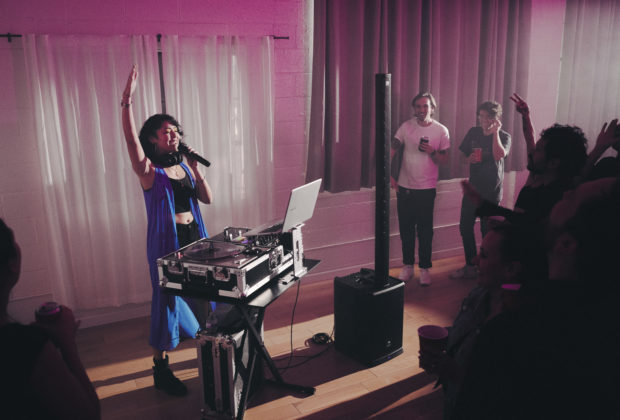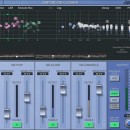Rehearsals are important to the functioning of every band. They are where you craft your best songs and put together your most spectacular live performance sets. But there is so much more to rehearsals than meets the eye. Let’s take a closer look.
Schedule Rehearsals and Meetings
Once you have your rehearsal space in order, you need a specific practice schedule. Examine the personal schedules of all involved to consider the most convenient times and days, and then schedule three to four sessions a week, leaving a day or two off in between to avoid burnout.
If you schedule a rehearsal on a weekend night, consider ending it early so that members have time to catch other bands’ performances, to network, to promote upcoming shows, and to simply have some free time for fun (after all, you are human).
Rehearse Before the Rehearsal
Whatever the objective for your next rehearsal session, remember this priority rehearsal tip: do your homework! It can save time and money, and prevent unnecessary tension.
Nothing is more unproductive than sitting around for an hour while a member figures out the chord changes to a song that could have been figured out at home. It’s disrespectful to the fellow band members who came prepared, and it’s a waste of your rent money, too.
Don’t Show Up Late
Time is valuable—especially when you’re shelling out precious rehearsal fees—so be sure to show up early for scheduled rehearsals.
If you have pedal boards, double bass pedals, or keyboard stands to set up (as you may when renting a studio by the hour), don’t spend the first 30 minutes of rehearsal doing so. Set up your gear in pieces outside of the room in the hallway or parking lot, and then move it all into place upon your allocated time. This way you can immediately get started with your rehearsal.
No Noodling Around In Between Songs
Here’s another time saver, courtesy of Rick King of Wall of Voodoo: “There’s nothing more distracting, unproductive, and annoying than a member noodling around in between songs when others are trying to work out parts. Everyone must remain focused on the same agenda at all times.”
I agree totally! There’s a time to practice rudiments and scales, and there’s a time to sit still and keep quiet.
Rehearse with a Click
Perhaps the best rehearsal tip I can offer is to use a click track. Whether you’re rehearsing for a live performance or for a recording session, rehearsing with a click can train you to “hold back” during live performances when you’re all pumped up from the crowd. It can also prepare you for recording sessions, where consistency of tempo from the beginning to the end of a song is crucial.
Record Your Rehearsals
Rehearsals should be recorded to help uncover where tempos are pushing or pulling, where song arrangements are working or not working, and where set orders are flowing or not flowing.
A portable digital recorder is really all you need to get the job done. Just place it in a section of the room where you can capture the best sound, hit record, and verbally title the recording (e.g., New Song #1, Set List A, etc.).
Appoint a band member to review the recording, take notes, and report back to the band at the next rehearsal with needed improvements and suggestions. If you want to feel like you’re really making progress, this tip is one of the most important to remember.
Hold Sectionals
Breaking up your rehearsals into different groups can help to isolate certain areas of concern and to remedy problems. For instance, the drummer and bassist can work on sections where the meter may be pushing and pulling, and the lead vocalist and background singer can tighten up harmonies.
Stephen Perkins, drummer for Jane’s Addiction, notes that his band often holds sectionals without vocalist Perry Farrell. Says Perkins, “Without vocal cues to rely on, you really learn to communicate well as a rhythm section. Furthermore, it gives Perry an opportunity to rest his voice. Be sure to add sectionals to your rehearsal schedule. You’ll be so much more productive.”
Bring Spare Supplies
As we approach the end of our discussion on rehearsal tips, let’s discuss spare parts.
To avoid ending your next rehearsal long before due, drummers and percussionists should carry extra snare heads and sticks, guitarists and bass players should carry extra strings and amp chords, and vocalists should bring a spare mic.
The last thing you want to do is spend your valuable rehearsal time racing around to find the nearest music store. Enough said!
Determine Your Guest Policy
A band must determine whether it wants its rehearsal sessions to be open to friends and family or kept private.
In the company of friends, you can run new sets and get immediate feedback. In private settings, you can work up new songs and arrangements without feeling pressured to entertain.
A possible solution: go for the best of both worlds. Schedule one evening of the week where friends can drop by at a specified time, and leave the other days of the week closed to your friends. But, whatever you do, determine a policy! Simply allowing friends to drop by as they wish will lead to unproductive sessions.
To Party or Not to Party?
And finally, for my last rehearsal tip, I suggest you create a party policy. Seriously! Hey, I’m not advocating this stuff, but beer and pot are nearly synonymous with a rock ’n’ roll lifestyle.
Says producer-singer-songwriter Raphael Saadiq, “If passing around a joint before rehearsal gets everyone in the vibe to create like it does for me, than do as you will. But if certain members are known to lose focus and get goofy, save the partying for later. There is a time for play, and a time for work. So please keep your priorities straight.”
BOBBY BORG, MCM is a former major label, independent, and DIY recording/touring artist with over 30 years experience working along side the most respected songwriters, managers, and A&R executives in the music industry. Currently, he is a a professor of music industry studies at a major University, a weekly blogger at YouTube/BobbyBorg, and the author of Music Marketing For The DIY Musician and Business Basics For Musicians. Download a sample chapter of his books now. His website is bobbyborg.com.













